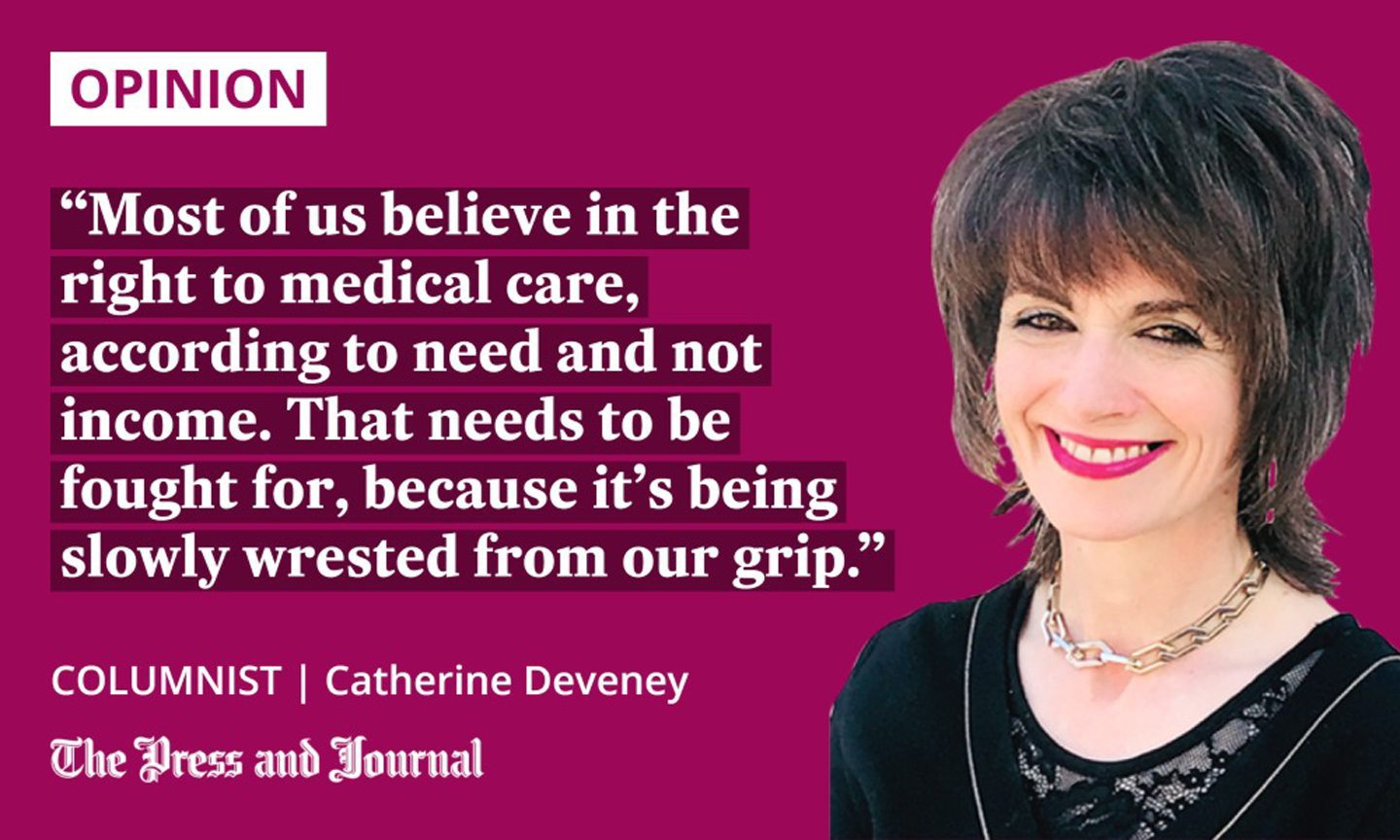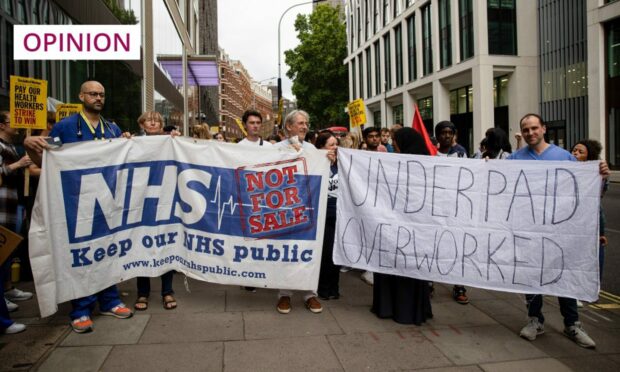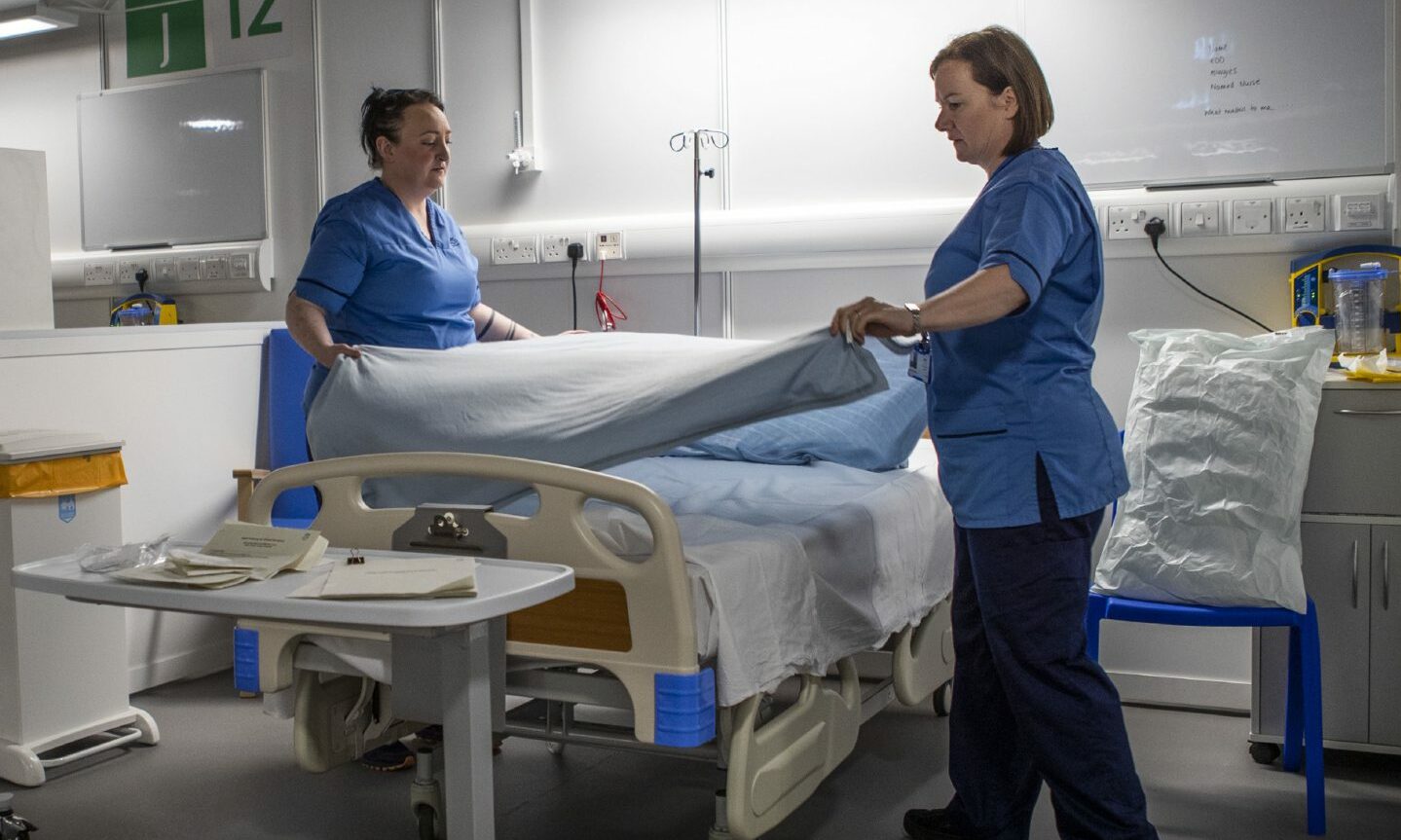NHS, part two. Somewhere in the ward, Robbie Williams is singing Angels.
My young patient smiles grimly, says it has been played so often since the demise of Queen Elizabeth, she wants to scream.
In the next bed, an elderly lady of the Queen’s generation has a baked potato dumped down on a side table. For the second day running, she struggles to reach it, hangs awkwardly out of the bed, looks up in silent confusion, before sinking back hopelessly into her pillows. Her uneaten food congeals slowly.

There are no televisions in the old-fashioned ward. Entering, it feels like a strange hiatus, given the tumult outside: no pictures of hearses, or floral seas, or respectful crowds. There are no doctors either.
It’s the weekend, though why we should pay for hospitals to “tick over” for two days rather than fully function, I don’t know. It feels like an organisational relic of a bygone era. The consultant was last here on Thursday and, I am told, will be back in this ward on Tuesday.
Energy is not our only crisis
I read my patient the headlines. Nurses are voting on strike action because the NHS has “gone over the precipice” and may not survive, says the Royal College of Nursing. The professional standards body for the UK’s 220,000 doctors, the Academy of Medical Royal Colleges (AMRC), says only radical changes will save it now.
The public has already been forced into change. In the last year, 10% have turned to private medicine because they cannot access life-saving treatment on the NHS. The AMRC warn of a dismal winter ahead. Energy is not our only crisis.
The Queen’s reign and the birth of the NHS began within five years of each other. Elizabeth was patron to the Royal College of Nursing and, last July, awarded the prestigious George Cross to the health service. (Which makes you wonder if she would approve of cancer appointments being cancelled on the day of her funeral in an already failing system.)
Even those of us who are not monarchists recognise the human sadness of the grieving House of Windsor, but, just as importantly, recognise this moment’s historical significance, its potential as a gateway to change. Elizabeth’s passing feels like more than the demise of an individual. In the ward, an elderly lady tell visitors it’s the end of an era.
The end of innocence
The death is prompting people’s personal memories. The radio news gives Kate Middleton’s description of her son George’s reaction. At least, George is reported as saying, the Queen will be with Great Grampa now. It seemed a peculiarly adult, un-childlike response, at odds with my own children’s reactions to death, which involved emotion, not reason: anger, fear and sadness. Years fly back.
An era of innocence ended; acceptance begun. The life cycle
“You should have told me!” My four-year-old said furiously, stomping off, when it was gently explained that our neighbour had died. Told him what, I wasn’t sure, but I understood that he needed to be angry with someone and, unfortunately, that someone was going to have to be me. What else are mothers for?
Then a bird flew into our window and lay lifeless on the path. He put it in a box with cotton wool, willing it to rise again, jumping off his bike and running to it every now and then to see if it fluttered. When it didn’t, he closed the lid and didn’t mention it again. He jumped back on his bike. An era of innocence ended; acceptance begun. The life cycle.
We have to fight for our NHS
Acceptance is the first stage of change, and change is now inevitable. Last week, perhaps I was still running to the box, looking for signs of life. This week, I read the AMRC’s verdict that “unacceptable standards” are being normalised, that the NHS routinely lets down patients, and I knew that I could see it, and could feel it.
In the last couple of weeks, I have visited daily for many hours. I have witnessed acts of kindness and of staggering rudeness; professional dedication and inexplicable indifference and inefficiency. Rigid timetables but chaotic organisation. And I have sniffed the unmistakable stench of decay.
The problems, say the AMRC, are not going to go away. However understandable the hyperbole, we cannot rely on “angels” in the NHS, on past glories or past solutions – any more than nurses can exist on applause. No matter how many times we run to the box, that particular bird is not going to flutter back to life.
Acknowledging the end of an era is important. But so, too, is holding on to the best of what has gone before, and developing it for the future.
Most of us believe passionately in the NHS. We believe in the right to medical care, according to need and not income. That needs to be fought for, because it’s being slowly wrested from our grip.
A difficult public conversation is needed, say the AMRC. Difficult it may be, but it’s one that all of us surely recognise is an urgent necessity.
Catherine Deveney is an award-winning investigative journalist, novelist and television presenter



Conversation